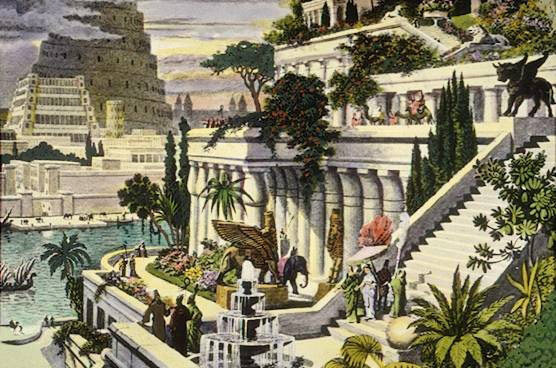Home Quiz
Week 1
Daniel 1:1-7

Daniel, Hananiah, Mishael and Azariah are marched off to Babylon to be trained
in the science and government of Babylon, and are given new names. How did
they get to this place?
2 Kings 23 - the Revival
- Revival under Josiah prophesied 400 years earlier in 1 Kings 13.
- Restoration of the temple and revival in 18th year of Josiah's reign (2 Kings 22:3).
- Josiah killed in battle with Neco of Egypt in 31st year of reign.
- 3 months under Joachaz
Jeremiah 27 – Serve the King of Babylon
And now, I [God] have given all these lands into the hand of Nebuchadnezzar
the king of Babylon, My servant; and the beasts of the field I have also
given him to serve him.
So all nations shall serve him and his son and his son's son, until
the time of his land comes; and then many nations and great kings shall
make *him* [his descendents] serve *them*.
Isaiah 39
Hezehiah unwisely shows off the treasures of Israel to an envoy from Babylon.
Isaiah then prophecies:
And they [the Babylonians] shall take away some of your sons ... to be eunuchs
in the palace of the King of Babylon.
2 Kings 24,25 – Babylon invades and takes Daniel and his friends

In the 3rd year of Jehoiachim, Nebuchadnezzar takes away some of the king's
descendents to Babylon to be made eunuchs and serve in the kings court.
- 11 years under Eliacim / Joakim, Daniel and friends taken in 3rd year.
They were teenagers (“children”), born during Josiah's revival.
- 3 year training program
- as eunuchs, girls did not distract them from their studies
What did Daniel and his friends see and learn during their training period?
- sundials and water clocks
- base 60 arithmetic, algebra
- planetary periods, eclipses predicted
- hanging gardens (colossal maze of waterfalls and dense vegetation)
In the 11th year of Jehoiachim, Nebuchadnezzar destroys Jerusalem, and
takes away the temple treasures, and more captives - including the prophet
Ezekiel.
Applications
- While Josiah's revival did not prevent the 70 year captivity, it did turn
the peoples hearts back to God, and prepared Daniel and his friends.
Furthermore, Josiah destroyed all the idols he could find (some were hidden
in high places to survive for our learning). When the Babylonians captured
a city, they took the gods of that city (i.e., the idols) back to Babylon
to show their subjection to Marduk. They could find no idols in Jerusalem,
so they took the gold and silver utensils - which was the closest thing to
an idol they could identify.
- God had chosen Nebuchadnezzar (Nabuchodonosor)
Porphyry and the Skeptics
In the late 3rd century AD,
Porphyry
claimed that the book of Daniel
must be a forgery
written since Antiochus Epiphanes, since the world
history in Daniel's and Nebuchadnezzar's visions is too accurate to have been
written before then.
- Any secular Scholar is going to ignore lots of evidence to move prophetic
material to a later date. Their reasoning is eloquently summarized by
Bart Erhman:
This isn’t simply the approach of “liberal” Bible professors. It’s the way
historians always date sources. If you find a letter written on paper that is
obviously 300 years old or so, and the author says something about the
“United States” — then you know it was written after the Revolutionary War.
So too if you find an ancient document that describes the destruction of
Jerusalem, then you know it was written after 70 CE. It’s not rocket science!
But it’s also not “liberal.” It’s simply how history is done. If someone
wants to invent other rules, they’re the ones who are begging questions!
As a result, secular scholars are useless for dating prophetic material.
- Daniel is included in the Septuagint, which was translated near the
beginning of the 3rd century - long before Antiochus Epiphanes.
- According to Josephus,
when Alexander the Great reached Jerusalem, he was met by priests who showed
him the book of Daniel. Alexander was so impressed, he entered the city
peaceably, and worshipped at the temple. Jewish antiquities 11.317-345
Secular scholars naturally consider this account fantasy, because, in their
mind, Daniel couldn't have been written yet.
- 8 copies of Daniel were present at Qumran (the "Dead Sea Scrolls")
dated to 125 BC, and were clearly considered canonical.
From Cave 4 we now have overriding evidence on both points from manuscripts
of books indisputably authoritative or ‘canonical,’ including Deuteronomy,
Kings, Isaiah, and Psalms.. .. However one uses in relation to Qumran the
category of what is later explicitly termed ‘canonical,’ the book of Daniel
was certainly in that category (Ulrich 1987:19).

